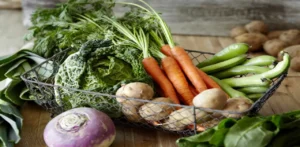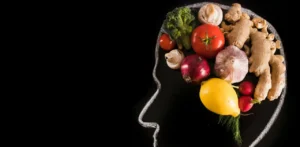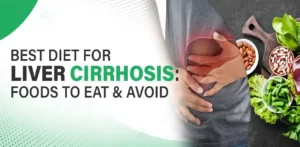Contents
Feeling down? You’re not alone. Depression is a common mental health condition affecting millions worldwide. While medication and therapy are crucial tools, research suggests that what you eat can also significantly impact your mood. This article explores the powerful link between nutrition and mental health, offering a roadmap to a depression-fighting diet rich in mood-boosting foods.
Understanding the Food-Mood Connection
Our brains are complex organs fueled by nutrients. Deficiencies in essential vitamins, minerals, and fatty acids can disrupt neurotransmitter production, chemical messengers that regulate mood and sleep. For example, low levels of serotonin, a neurotransmitter associated with happiness, are linked to depression.

Depression-Fighting Food Stars
Here’s a breakdown of some key players in your depression-battling diet:

- Omega-3 Fatty Acids: Found in fatty fish like salmon, mackerel, and tuna, these healthy fats have been shown to reduce inflammation, improve brain function, and potentially alleviate depressive symptoms. Aim for 2-3 servings of oily fish per week.
- B Vitamins: Essential for energy production and neurotransmitter function, B vitamins like B12, B6, and folate can be depleted during depression. Excellent sources include leafy green vegetables, lentils, chickpeas, and fortified cereals.
- Vitamin D: Often nicknamed the “sunshine vitamin,” vitamin D plays a vital role in regulating mood. Studies suggest a link between low vitamin D levels and depression. Include sunshine exposure alongside dietary sources like mushrooms, fortified milk, and fatty fish.
- Tryptophan: This amino acid is a precursor to serotonin. Lean protein sources like turkey, chicken, and tofu can help increase tryptophan levels, promoting better sleep and mood regulation.
- Prebiotics and Probiotics: A healthy gut microbiome is linked to improved mental well-being. Fermented foods like yogurt, kimchi, and kefir are rich in probiotics, while fruits and vegetables provide prebiotics, food for those beneficial gut bacteria.
- Complex Carbohydrates: Refined sugars can cause blood sugar spikes and crashes, leading to mood swings. Opt for complex carbohydrates such as whole grains, brown rice, and quinoa for sustained energy and improved mood.

Building a Depression-Friendly Meal Plan
Now that you know the superstar ingredients, let’s create a sample meal plan:
- Breakfast: Start your day with a mood-boosting smoothie made with spinach, banana, berries, Greek yogurt, and a sprinkle of chia seeds. This provides a good mix of protein, healthy fats, fiber, and vitamins.
- Lunch: Enjoy a colorful salad with grilled salmon, quinoa, roasted vegetables, and a vinaigrette dressing. This dish offers omega-3s, B vitamins, fiber, and healthy fats.
- Snack: Reach for almonds, a handful of mixed berries, or a small piece of dark chocolate with at least 70% cacao content. These choices provide antioxidants, healthy fats, and a touch of sweetness.
- Dinner: Whip up a stir-fry with lean chicken, brown rice, broccoli, and peppers. This meal offers protein, complex carbohydrates, and essential vitamins.
Remember:
- Variety is key: Include a wide range of fruits, vegetables, whole grains, and lean protein sources to ensure you’re getting all the essential nutrients.
- Stay hydrated: Dehydration can worsen mood swings. Aim to drink plenty of water throughout the day.
- Limit processed foods: Processed foods are often high in sugar, unhealthy fats, and lacking in essential nutrients.
- Mindful eating: Slow down, savor your food, and pay attention to your body’s hunger and fullness cues.
Beyond Food: A Holistic Approach
Remember, a healthy diet is just one piece of the puzzle in managing depression. Regular exercise, sleep hygiene practices, and social connection are all vital for promoting mental well-being.
Also Read: “MS Diet: Foods to Fight Fatigue & Manage Symptoms”
Seeking Professional Help
If you’re struggling with depression, it’s important to seek professional help. A doctor or therapist can create a personalized treatment plan that may include medication, therapy, and dietary guidance.

Embrace the Power of Nutrition
By incorporating a depression-fighting diet into your overall treatment plan, you’re taking an active role in managing your mental health and paving the way for a brighter, more positive outlook. Remember, you’re not alone on this journey. With a combination of healthy choices and professional support, you can find relief and reclaim your emotional well-being.
Finding Healthy Food Near You
IntRest is here to help. Our platform categorizes the menus of local restaurants based on diseases, allergies, diets, and interests of users. Whether you’re looking for meals that align with a depression nutrition therapy or simply want to enjoy healthy, delicious food, you can find options tailored to your needs on IntRest.
Conclusion
Managing depression involves a multifaceted approach, and nutrition plays a vital role in this process. By incorporating foods that improve mood and support brain health into your diet, you can help alleviate some symptoms of depression. Remember, it’s essential to consult with healthcare professionals to create a comprehensive treatment plan that works best for you.
For those looking to simplify their search for healthy meals, IntRest offers a convenient solution. With our website, you can easily order personalized healthy food from local restaurants according to your illness, diet, and allergies. Start your journey towards better mental health and well-being today with the right nutrition and support from IntRest.



